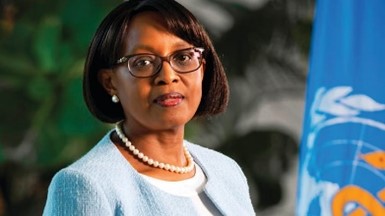Rape In Liberia-MSF Gives Hope To Victims

 “13 years old teenager raped by 30 years old man”, “8 years old girl raped” and the list goes on, these kinds of headlines are very frequent in Liberian media.
“13 years old teenager raped by 30 years old man”, “8 years old girl raped” and the list goes on, these kinds of headlines are very frequent in Liberian media.
Indeed, despite drastic measures taken by the Ellen Johnson Sirleaf’s led government to stop the scourge, innocent Liberian girls and women are still the targets of some brutal, shameless, bestial, and cruel individuals who are bent on devastating women, mainly teenagers.
After going through the paroxysm of pain, what is compounding is that out of fear of being stigmatized, the victims prefer keeping it as secret.
To change the state of affairs, the international charity, Doctors Without Borders (Medecins Sans Frontiere) MSF Belgium Liberia, has undertaken a campaign to sensitize the victims of rape about the need to go to hospital for treatment.
Our editor visited the Inland Clinic in Virginia where the MSF Belgium Liberia is treating rape patients and he reports. Weeping as she speaks, a 14-year-old rape victim said she was raped when she was selling peanuts to help pay for her school fees.
The man, who attacked her in the Liberian capital Monrovia, lured her into a room by saying he had left his money there.
“He grabbed my hands and forced me into the room,” the rape victim narrated in tears. “I started to cry for help. He told me that I was shouting for nothing because he was untouchable.”
[bsa_pro_ad_space id=1]
The victim said she did not stop screaming. “After he finished, I was still shouting. That’s how one big man working for the government, who was passing, forced the door open. And they arrested him. But he had already done what he wanted,” she added.
The rape victim had gone to a clinic of the international charity Doctors without Borders (Medecins Sans Frontiere) for a free test for HIV, the virus that causes AIDS, and for counseling to help her cope with the trauma.
“The story is a depressingly common one here where 80% of the rape cases reported to MSF clinics in the country involve children,” said Theresa Saday, supervisor of the group’s sexual violence program in Liberia.
Rape is rife in the West African nation, a legacy, many observers say of brutal back-to-back civil wars that engulfed the nation between 1989 and 2003. At least hundred women and girls are raped every month, according to the government figures.
Saday says MSF sees 60-70 cases a month. Some of them of children as young as 18 months. “During the war, the fighters got used to raping and going free. They had the guns; they could not be arrested or executed for the act, so it became a habit,” Liberian Sociologist Abel Grant said. “Now that the war is over, they are no longer untouchable, but they cannot stop it,” he added.
The attacks shatter lives, but the strong social taboos mean that women and girls often prefer to deal with their ordeal alone rather than risk the taunts and stigmatization that come with growing public. Most even refuse to go to hospital for treatment.
Women, who are raped, are sometime accused of having consented to sex, and then making false accusations; some husbands demand a divorce if their wives are raped. Compounding the pressures for a woman is that, in most cases, her rapist is known to her, Saday said. “If you look at our statistics, most of the perpetrators are not strangers. They are known and they are in the community with the survivor.”
MSF Belgium Liberia is pushing a campaign called, “rape is hospital and clinic business” to encourage rape survivors to heal themselves by making use of its free medical and counseling services. The campaign sent colorful dance troops in several parts of the Liberian capital, to attract crowd with acrobatic performances while delivering the MSF message, which was also broadcast through radio, television and newspapers.
This campaign was significant in the sense it saw some successes with an increase of the number of people approaching the clinic. The most worrisome part of rape and this is in the center of all questions, is how the victims cope with the situation after undergoing such an inhuman treatment and ordeal.
For the psychologist of MSF Belgium Liberia, Elias Abi-Aad, “when they are children, some time they cope, and within one two weeks they go home.” He added that, “when they become adult, any incident can remind them what they went through. For the adults, it is a difficult thing to live with.”
The devastated young peanut-seller waiting for treatment at the Inland Hospital in Virginia is still struggling to come to terms with what happened to her.
“I was selling peanuts to pay my school fees because my parents don’t have money,” she said. But now she has quit school. “I can’t sell anymore. I will not be able to sell,” she added.
















